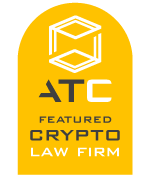
Written by: Aaron Grinhaus
Not written by: AI/ChatGPT, an associate, marketing company or ghost writer
In recent years there have been many regulatory and legislative changes related to the rules pertaining to setting up your business offshore. Although there are many reasons, other than tax efficiency, which exist for establishing a presence offshore, such as owning or holding investment or rental properties or establishing a presence for business purposes in a jurisdiction other than your home country, there is still an opportunity to derive a tax benefit as long as you meet certain requirements. Two of the main requirements needed to be met in order to derive a tax benefit from establishing an entity in an offshore jurisdiction are that 1) the people controlling the business are primarily not in Canada, and 2) that the operation or activity of the business is not primarily in Canada. These tests are respectively known as the central management and control test and the economic substance test, and are detailed in the cases, the legislation in Canada, and in certain situations paired with legislation in offshore jurisdictions in the form of tax agreements and treaties in order to allow our countries to share information and inquire about suspicious structures and transactions.
In the first test, the central management and control test, it must be established that the controlling minds of the business are not in Canada. This means that if you create a corporation offshore and hire five directors in that jurisdiction, but there is one individual who is the sole shareholder of that corporation who is resident in Canada and who is de facto calling all the shots, then even though that individual is not a director or officer or signing off on any documentation, the central management and control is still in Canada. It is a question of fact rather than what is on paper. In other words, the tax authority will consider substance over form. The consequence of having the control in Canada is that Canada will have jurisdiction to tax and will impose its tax rates and rules.
The second test, the economic substance test, analyzes whether the business itself is actually situate in the jurisdiction in which the business is incorporated. In other words, if the business has a factory in Canada, with employees in Canada, customers across Canada and it's distribution and supply chain are all in Canada, but the corporation happens to be incorporated in the Caribbean, then the economic substance of the business is clearly in Canada and therefore Canada will have jurisdiction to tax and will impose its tax rates and rules.
That having been said, it is important to note that the residency of the controlling minds does not necessarily have to be in the specific jurisdiction in which the corporation is set up offshore; instead, in order to avoid Canadian taxes being imposed, they should not be in Canada. In many types of businesses, such as information technology, cloud-based, Blockchain or intellectual property based businesses, the controlling minds are all over the world. Therefore, if one individual controlling mind is located in Canada, but one is located in the United States and one is located in the Caribbean, then an argument can be made that the central management and control is not resident in Canada and therefore Canada would not have jurisdiction to tax. Furthermore, in these types of businesses, there is typically no brick-and-mortar establishment, inventory, supply chain or physical products which must be managed and shipped which are located in Canada. Instead, servers may be established in offshore jurisdictions, and skilled employees in those jurisdictions may be hired to manage the operations of the business on the scale required. Depending on the circumstances, this could be enough to establish the economic substance as being in that offshore jurisdiction, which would be enough to derive the tax and other benefits which come along with being resident in that jurisdiction.
Grinhaus Law Firm has a niche expertise in helping Canadians structure cross-border corporations in the United States and offshore structures in the Caribbean and around the world. With our network of contacts and infrastructure in those jurisdictions we are able to provide full service setup and advisory for real estate purchases, corporate structures and tax advice in order to establish a legitimate presence in those jurisdictions. Please contact us should you wish to learn more about the opportunities, process and costs of establishing a presence in the United States or offshore, we would be happy to use our expertise to guide you through the process from start to finish.



